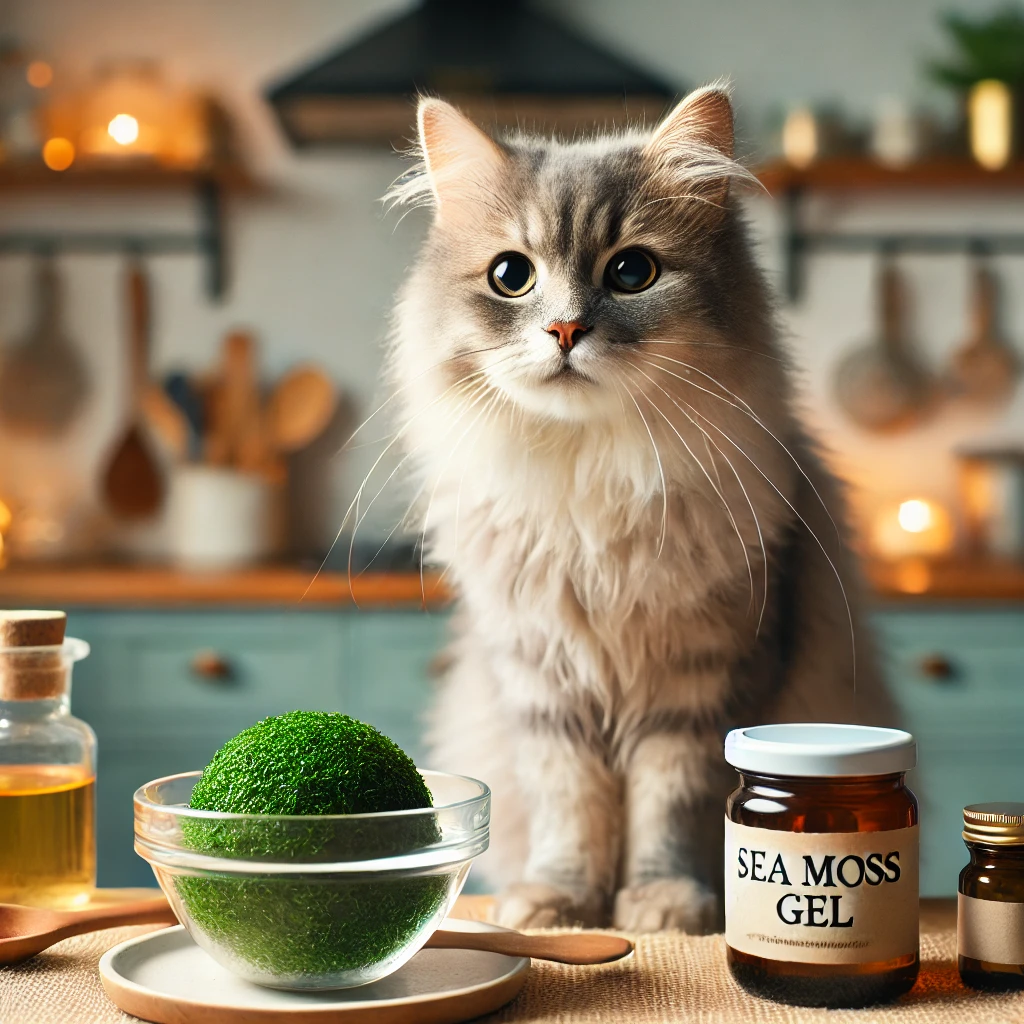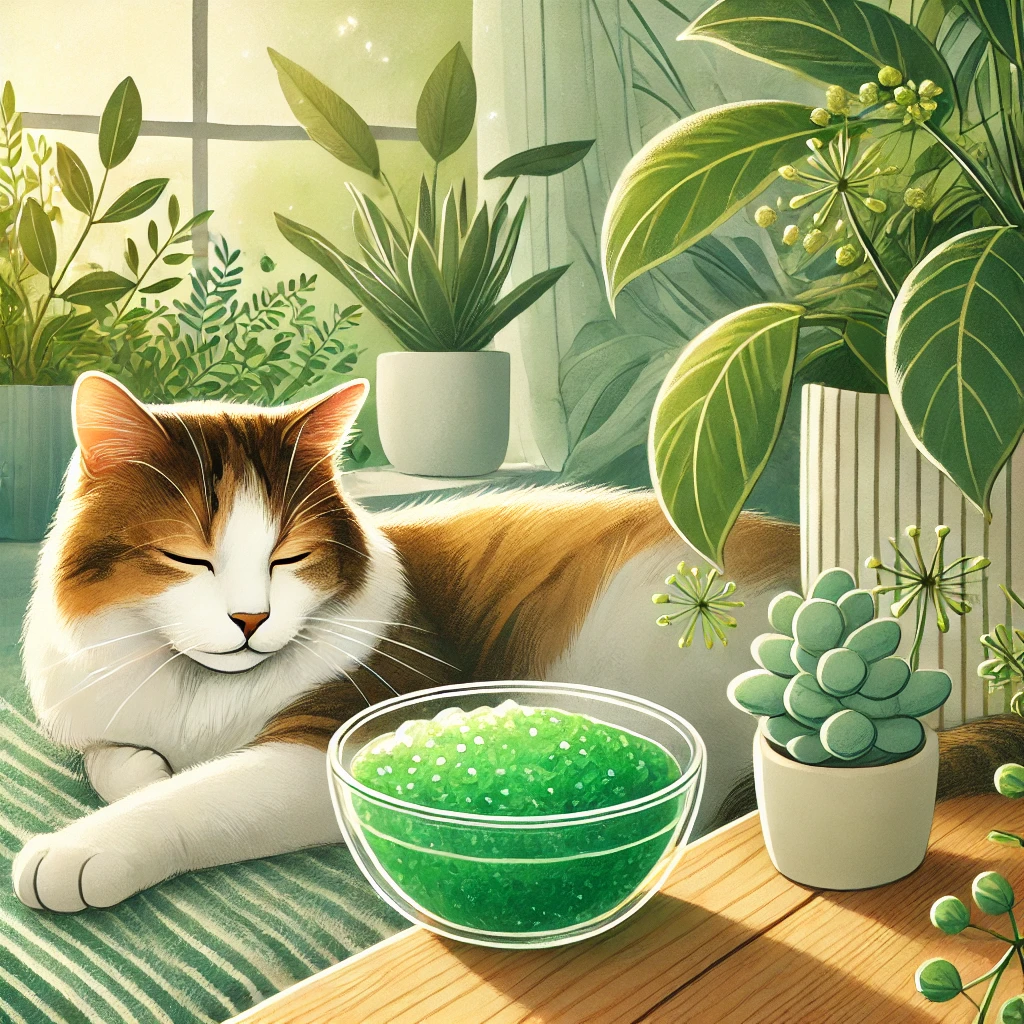Do Cats Like Sea Moss?
Do Cats Like Sea Moss? The Ultimate Pet Owner's Guide
The food we give our fuzzy friends is one of the most important factors in their health and happiness. Another thing they’re asking for is, do cats like sea moss? Sea moss (Irish moss) has been having quite a bit of attention lately for humans as a superfood and health benefit, but what about sea moss benefits for cats?
In this complete guide, we will look at whether cats like sea moss, if sea moss is safe for cats, and the health benefits of sea moss for your cat plus how to add them to their diet if it is appropriate.
What is Sea Moss?
Sea moss is a red algae, or more commonly known as Chondrus crispus, native to the rocky coasts of the Atlantic Ocean. The nutritious profile of this marine plant has made it a star food ingredient in herbal medicine and culinary usage for centuries.
Key Nutritional Components of Sea Moss
- Iodine: Promotes healthy thyroid function.
- Calcium and Magnesium: Supports strong bones and reserving effectively for nerves.
- Vitamins A, E, and K: Necessary for skin health, vision, and blood clotting.
- Antioxidants: Aid in fighting oxidative stress within the body.
Although these benefits for humans are well-established, the question is: can cats safely eat this superfood?
Do Cats Like Sea Moss?
You have to keep in mind that cats can be picky eaters. Some will only choose one form of sea moss over another based on how it looks and the way it is prepared.
Factors Influencing Preference
- Texture: Sea moss can take on a gel-like form once hydrated, which may entice cats who enjoy wet food.
- Flavor: Real sea moss has a subtle, slightly briny taste. Cats might be attracted to this because it resembles the taste of their prey.
But every cat reacts differently. While some cats will vigorously eat sea moss, others will refuse to touch it.

Is Sea Moss Safe for Cats?
Whether or not sea moss is safe for cats largely depends on how it is prepared and delivered to your cat.
Safety Guidelines
- Pure Sea Moss Only: Make sure your sea moss does not contain any additives, salt, or preservatives, as the case with ocean alternative brands – which can be toxic.
- Limited Amounts: Sea moss can overwhelm the iodine or fiber levels in cats, so only give your cat a tiny bit.
- Observe for Reactions: Always look out for signs of unease — e.g. vomiting, diarrhea, or changes in appetite.
The Nutritional Value of Sea Moss for Cats
When taken appropriately, sea moss can come with a host of health benefits:
1. Thyroid Support
The iodine in sea moss helps support your cat’s thyroid health. But too much iodine can result in hyperthyroidism, so moderation is the trick.
2. Improved Digestion
The natural fiber present in sea moss makes it effective in regulating your cat’s digestive system, especially if he/she tends to get constipated or has mild digestive irregularities.
3. Boosted Immunity
Sea moss is full of antioxidants and vitamins that can be beneficial to your cat’s immune system, allowing them to fight off infections and diseases.
4. Joint and Skin Health
The omega-3 fatty acids and minerals found in sea moss may help provide better skin, a shinier coat, and also have a possible positive effect on joint health for aging cats.
5. Hydration Aid
Sea moss can provide hydration when given to your cat as a gel, which benefits more dry kibble-eating cats.
Sea Moss & Cats: The Risks of Feeding Sea Moss to Cats
If you do introduce sea moss into your feline diet, observe the following best practices:
Start Small
Start with the size of a pea mixed into their regular food. Monitor your cat closely for any negative reactions.
Blend with Wet Food
You can combine sea moss gel into your kitty’s favorite wet food to cover up the texture and taste.
Frequency and Portion Control
Sea moss should only be fed as an occasional treat: no more than once or twice each week.
Monitor Health
When you do start adding sea moss, pay close attention to your cat over the next several days and weeks — their digestion, energy level, even overall health. If there is something off, stop using it and contact your vet.
Vet Consultation
Never change your cat’s diet without speaking to a veterinarian first, as they may have specific health requirements.
Tips for Getting Sea Moss into Your Cat’s Diet
If you do introduce sea moss into your feline diet, observe the following best practices:
Start Small
Start with the size of a pea mixed into their regular food. Monitor your cat closely for any negative reactions.
Blend with Wet Food
You can combine sea moss gel into your kitty’s favorite wet food to cover up the texture and taste.
Frequency and Portion Control
Sea moss should only be fed as an occasional treat: no more than once or twice each week.
Monitor Health
When you do start adding sea moss, pay close attention to your cat over the next several days and weeks — their digestion, energy level, even overall health. If there is something off, stop using it and contact your vet.
Vet Consultation
Never change your cat’s diet without speaking to a veterinarian first, as they may have specific health requirements.
Cat Sea Moss Alternatives
If your cat hates sea moss or you would prefer to avoid it altogether, try these safe alternatives for cats:
- Spirulina: Protein and antioxidant nutrients in algae.
- Chlorella: A different type of algae that helps detox and boost immunity also.
- Wheatgrass: A safe, high-fiber green that many kitties enjoy munching on.
- Fish Oils: Source of omega-3 fatty acids for joint and skin health.

Myths About Cats and Sea Moss
“Sea moss is a cure-all for cats.”
Sea moss may have numerous health benefits; however, it is not a superfood and will never be an alternative to a well-balanced diet.
“Sea moss will be loved by all cats.”
Every cat is different, and their digestive systems can handle only so much, so not every cat is going to respond to sea moss the same.
“Sea moss is a regular food.”
Sea moss should only be used as a periodic supplement and not a component of your cat’s diet.
FAQ Section
1. Can cats digest sea moss?
Yes, cats can eat sea moss in moderation. When provided in the right way, its fiber content could even be beneficial for digestion!
2. Does sea moss give cats protein?
Sea moss does have some protein in it, but not as much as meat, which is necessary for cat diets.
3. Do some types have more problems with sea moss?
Although no breed seems to be particularly more susceptible, older cats or those with thyroid problems may be more sensitive than others due to the iodine content of sea moss.
4. Will my cat benefit from sea moss for her coat?
The vitamins and omega-3s in sea moss are ideal for skin and coat condition, meaning shinier, softer coats.
5. How do I choose safe sea moss for cats?
Be sure to source high-quality, organic sea moss from trusted suppliers. Stay away from additives and preservatives.
Conclusion: Can You Give Your Cat Sea Moss?
Whether or not cats like sea moss really depends on how it is introduced, and not every cat will be interested in eating it. Sea moss does have some health benefits, but it is not necessary for a feline.
Always choose good cat food that is tailored to your pet’s specific dietary needs. If you’re interested in adding sea moss, take small amounts with your vet supervising how much to give. The end result is a happy, healthy cat, and that depends upon their diet.
At Pet Care Heave, uncover additional pet health hacks for improving your furry friend’s quality of life. Whether it be dietary advice or grooming guides, we have you covered!
